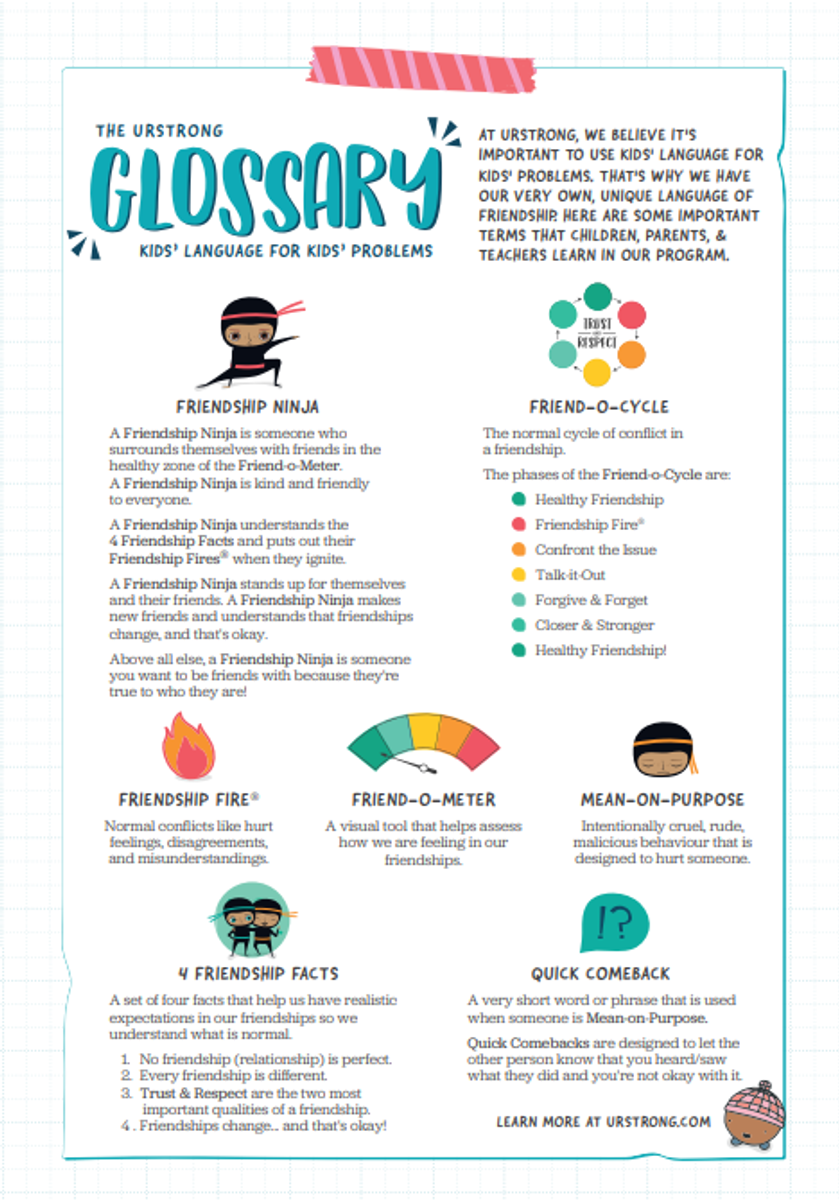Wellbeing

Friendology & Positive Thinking
This term at VPS, we have continued to explore the Friendology program as part of our whole-school approach to Wellbeing. This program will help the students navigate the ups and downs of healthy friendships, manage stressful situations and build their own self-esteem and confidence.
Friendology is a whole-school friendship strategy and curriculum and has improved the social climate in schools around the world, connecting over a million kids, parents, and teachers with a common language of friendship.
As part of the Friendology Program, families have access to a free parent membership. Here you will find hundreds of resources including tips and tricks, articles, podcasts, activities and more.
By clicking the below link, you can follow the steps to create your own family account.
Below is a glossary of terminology used in Friendology and at VPS. By using these terms and concepts, we can create a common language of friendship and kindness in our community. Having a shared understanding of this language at home and at school, supports our community to develop healthy relationships and a culture of respect.
In previous newsletters, we have touched on another Friendology concept – ANTs – Automatic Negative Thoughts. These thoughts often spiral and can multiply and become unrealistic. It is normal to have ANTs from time to time; however, if we let them roam free in our minds, they can shake our confidence and stop us from doing things. One way to challenge or squash our ANTs is to replace our Automatic Negative Thoughts with positive ones.
Some ways we can boost confidence and positive thinking in our students and children are:
Praise the attempt, not just the success – Praise them for trying something new, trying their hardest or having a positive attitude. Success comes in many shapes and forms and simply trying is worthy of positive feedback.
Help them learn - Teach by showing and helping at first. Then let them do what they can, even if they make mistakes. This is a key part of developing positive self-esteem. Be sure they get a chance to learn, try, and feel proud.
- Accentuate the positive - It can be easy for kids to focus on what went wrong, like not doing well on a test. Each night during dinner or before bed, talk with your child about good things that happened that day. Soon they will start to notice more positive things about the people in their life and themselves.
As always, please feel free to reach out for more information about anything related to Friendology, student wellbeing or individual concerns you may have. I am contactable via compass, through the office or via email – louise.jarvis@education.vic.gov.au
Have a lovely weekend,
Louise Jarvis
Wellbeing Specialist Teacher

